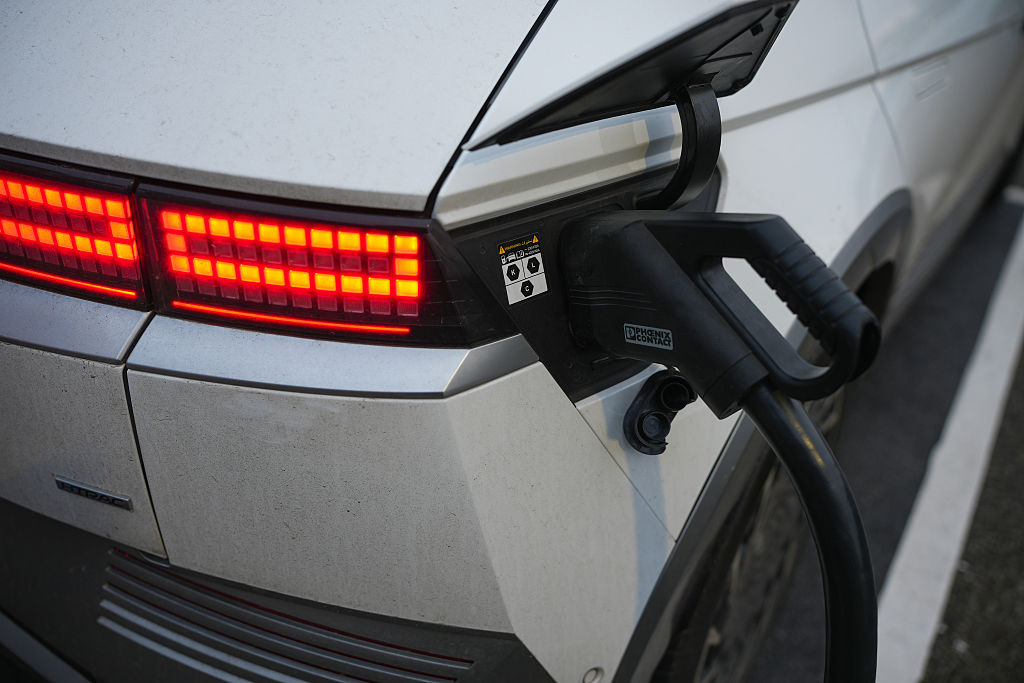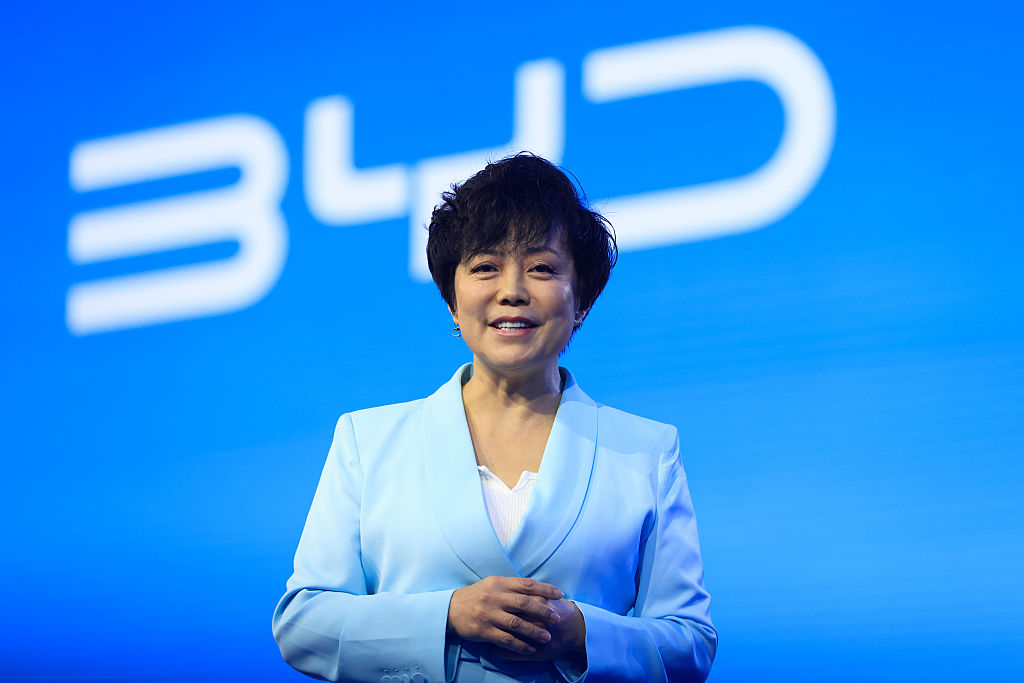How to profit as electric cars hit the mainstream
The long-heralded age of the electric car might finally be upon us. Matthew Partridge looks at how to profit.

Get the latest financial news, insights and expert analysis from our award-winning MoneyWeek team, to help you understand what really matters when it comes to your finances.
You are now subscribed
Your newsletter sign-up was successful
Want to add more newsletters?
Perhaps more than any other 'future' technology, electric cars have always been 'just around the corner' but have never quite arrived. Many of the first 'horseless carriages' of the late 19th century were battery powered. But they were soon supplanted by cheaper, faster, wider-ranging petrol-based cars.
In the 1970s, the oil crisis sparked a brief surge of interest in electric car technology. But it petered out once the technical hurdles became clear. The mid-1990s saw several manufacturers produce electric cars, most notably General Motors' EV1, in response to a Californian law that required them to do so.
But when the law was changed, most of the cars were withdrawn and destroyed (they had been leased, not sold). Some claimed a conspiracy between Big Oil and the car business the companies themselves argue that the machines were simply too expensive to be commercially viable.
Try 6 free issues of MoneyWeek today
Get unparalleled financial insight, analysis and expert opinion you can profit from.

Sign up to Money Morning
Don't miss the latest investment and personal finances news, market analysis, plus money-saving tips with our free twice-daily newsletter
Don't miss the latest investment and personal finances news, market analysis, plus money-saving tips with our free twice-daily newsletter
In any case, electric cars have had yet another shot at glory in recent years. The highest-profile manufacturer, Tesla, began selling its high-end electric sports cars in 2008. Nissan's all-electric Leaf launched that year too, while Toyota and Chevrolet have produced hybrids.
But all have issues that have limited their success. For instance, tests suggest that in heavy traffic with the air conditioning on, drivers would struggle to get even 50 miles per charge from a Leaf. Tesla's Model S can get up to 310 miles per charge (still below the 600 miles a typical car can travel on a tank of petrol), but its latest version costs just under £50,000.
As a result, electric and hybrid cars remain a niche product. They accounted for just 0.6% of total US vehicle sales in 2013. Even in France and Japan which have proved more enthusiastic adopters they still have a market share of less than 1%. Only Norway and Holland buck the trend, with 6.1% and 5.6% respectively. So what would it take to create an electric car that is both practical and affordable?
Enter the iCar
A Wall Street Journal article last week provided a possible answer to that question: Apple. Apple is rumoured to have hired hundreds of engineers and designers to work on its very own electric vehicle. It has neither confirmed nor denied the story, but it's not so far-fetched.
It's already recruited some of the top research and development people from Tesla, Mercedes and Ford. Some of its top brains, including chief designer Jony Ives, are well-known car enthusiasts.
It could all just be rumour. Some argue Apple is more interested in getting its software into new cars an 'iDash' rather than an 'iCar'. And building a car from scratch would be expensive and involve hiring thousands. That said, Apple does have the resources.
Thanks to its $142bn cash pile, it could even buy out a large carmaker. So if nothing else, existing car makers will have to treat the threat seriously and step up their efforts to produce a genuinely popular electric car, or face being left behind.
There's one clear sign that the industry is taking the market seriously this time spending on infrastructure. Car companies, governments and utilities are all shelling out to expand the numbers of charging stations vital if electric cars are to be adopted widely.
Thanks to investment by Nissan, there are already more charging points in Japan than petrol stations 40,000 of them. Adoption has been slower in the US, but the Californian utility Pacific Gas and Electric plans to expand the number of charging stations to 25,000 an eightfold increase by the end of the decade.
Companies are also working on better batteries. In an effort to push down the cost of cutting-edge lithium ion batteries, Tesla is working with SolarCity (both companies were founded by Tesla boss Elon Musk) to build a huge factory that will make lithium ion batteries on a large scale (see belowfor more on investing in lithium).
Some scientists believe that recent developments in graphene technology could enable cars to travel as far as 500 miles on a single charge and slash the amount of time needed for recharging.
Exit the driver
Another intriguing possibility is that Apple might apply its expertise to the world of driverless cars. For now, Google is in the lead, and hopes to start selling cars by 2017. However, industry experts think 2020 is a more realistic date that would put it in line with Mercedes, which has already unveiled a full working prototype. Others, including General Motors, Toyota and Ford, plan to launch fully automated cars within a decade.
The idea of a self-driving car is exciting, and the technology has come far. But there are plenty of problems still to overcome, as New Scientist points out. Google's systems have had difficulties dealing with some common obstacles, such as manhole covers and successful testing in the sunny, rain-free climates of California and Nevada might not be a realistic indication of how a car will perform in cloudier countries like ours.
Human drivers are another risk factor for 'robot cars' computers still have problems accounting for human nature and the unwritten rules of the road.
Yet even if robot cars do take a few years to appear, car firms are already battling to make driving much simpler. Advanced breaking systems that slow the car down when it gets too close to the vehicle in front are now standard. Some luxury cars can all but park themselves. So whether or not Apple decides to launch an iCar, the world of driving is facing a major evolution in the not-too-distant future. We look at the best ways to profit below.
The five stocks to buy now
Driverless vehicles may not become an everyday sighton the roads for a while, but they are already widely usedin the mining industry. Rio Tinto's 'autonomous haulage system' was developed by Japanese manufacturer Komatsu (Tokyo: 6301).
Thanks to Komatsu's technology, satellite-guided trucks can load themselves up then transport theircargo through the Australian outback without the need for human intervention. Daiwa Securities expects the company's sales and operating profits to grow strongly in the next year.Its shares currently trade at 13 times 2016 earnings and yield 2.5%.
Johnson Controls (NYSE: JCI) is one of the leading makers of parts for the car industry and building trade. It has been expanding its car battery segment, especially batteries for electric and hybrid vehicles. The latest vehicle to use the firm's batteries is the Hybrid Range Rover.
As well as the increase in demand for electric vehicles, it should benefit from the wider global recovery in car sales. Despite strong prospects, it is relatively inexpensive, trading at under 12 times 2016 earnings.
China's chronic pollution problem and the unrest it gives rise to means the government is keen to encourage any project that might help. This suggests that there is plenty of potential for Kandi's (Nasdaq: KNDI) electric mini-car, which can reach speeds of up to 50mph.
To increase uptake, Kandi is running a car-share scheme using automated electric garages, which function like vending machines. This allows users to access Kandi's vehicles for only $3 per hour. The company is currently loss-making, so this is a high-risk bet. But with the Chinese government pouring billions of dollars into subsidies, there is an extremely large potential upside.
The 'iCar' may or may not materialise, but Apple (Nasdaq: AAPL) looks worth considering all the same. The price has surged by more than 60% in the past year alone, yet it still looks decent value. JP Morgan notes that once cash is taken into account, it trades on just 12.5 times forward earnings.
The company's upcoming 'smartwatch' is expected to grab a large share of the global market, and it also has plenty of other products in the pipeline, including newer version of its laptops, smartphones and tablets.
Finally, we tipped Daimler (Germany: DAI) a few weeks ago as one of the European companies that will do well whatever the wider macro economy. We'd certainly stick with it it owns Mercedes, which many believe is the company closest to developing a fully self-driving car. It currently trades at11.8 times forward earnings and pays a dividend yield of 3.5%.
A promising playon 'the new oil' for electric cars
Over the last year or so, I've been digging into what some consider "the new oil", writes Bengt Saelensminde. What is this miracle substance? Lithium. The metal is vital to everything from modern laptops to electric cars to solar energy if we want to live in a greener, cleaner future, we're going to need plenty of batteries to get there, and lithium is the key component.
But how do you invest in lithium? There's only really one way, and that's through miners.
One I've been paying attention to is Aim-listed Mexican lithium explorer Bacanora Minerals (LSE: BCN). It's had a roller-coaster ride it listed at around 30p a share in the middle of last year, then got as high as 85p, and has spent much of the rest of the time yo-yoing between those two levels.
It's risky it doesn't yet produce any lithium. But hopefully that should change this year. It already has funding in place to bring its borates mine (borates are used in fibreglass insulation, among other things) into production, and it should achieve this by the end of 2015.
Meanwhile, estimates of the scale and quality of production at its lithium project have been revised higher if it can find a partner, perhaps from the electric vehicle sector, the share price is likely to take off. It's a risky stock in a risky sector but if you're willing to take a risk, I think it's one of the most promising ways around to play the rising demand for lithium.
Get the latest financial news, insights and expert analysis from our award-winning MoneyWeek team, to help you understand what really matters when it comes to your finances.

-
 Student loans debate: should you fund your child through university?
Student loans debate: should you fund your child through university?Graduates are complaining about their levels of student debt so should wealthy parents be helping them avoid student loans?
-
 Review: Pierre & Vacances – affordable luxury in iconic Flaine
Review: Pierre & Vacances – affordable luxury in iconic FlaineSnow-sure and steeped in rich architectural heritage, Flaine is a unique ski resort which offers something for all of the family.
-
 Electric vehicle drivers to be charged new per mile tax from 2028
Electric vehicle drivers to be charged new per mile tax from 2028Electric vehicle drivers will be forced to pay a 3p per mile tax, as taxation will be brought closer in line with petrol and diesel cars
-
 The Stella Show is still on the road – can Stella Li keep it that way?
The Stella Show is still on the road – can Stella Li keep it that way?Stella Li is the globe-trotting ambassador for Chinese electric-car company BYD, which has grown into a world leader. Can she keep the motor running?
-
 The state-backed “gigafactory”: all aboard the next Concorde
The state-backed “gigafactory”: all aboard the next ConcordeOpinion State functionaries do not have a good record of picking winners. That won’t stop them doing it again
-
Have we reached the end of the road for petrol cars?
News The prime minister has said that all new sales of vehicles with internal combustion engines will be banned from 2035. Is that achievable?
-
We're near the tipping point for electric cars
Editor's letter Demand for electric cars is soaring soared. And while the switchover will be expensive, we could be near a tipping point.
-
 How to invest as electric cars get the green light
How to invest as electric cars get the green lightCover Story As emissions caps choke demand for diesel vehicles, electric cars will start motoring. Buy lithium miners and battery makers to cash in, says Julie Boote of Pelham Smithers Associates.